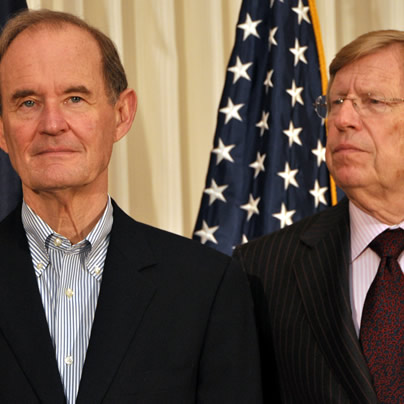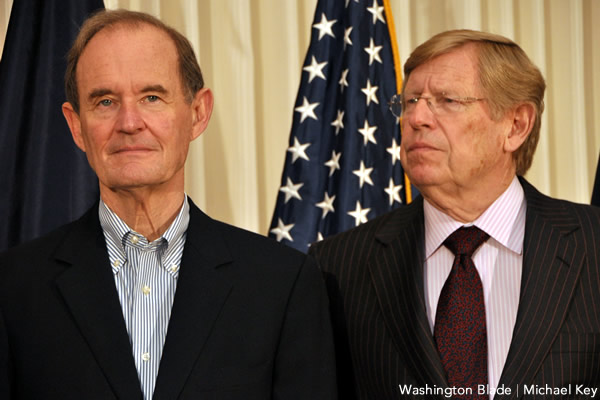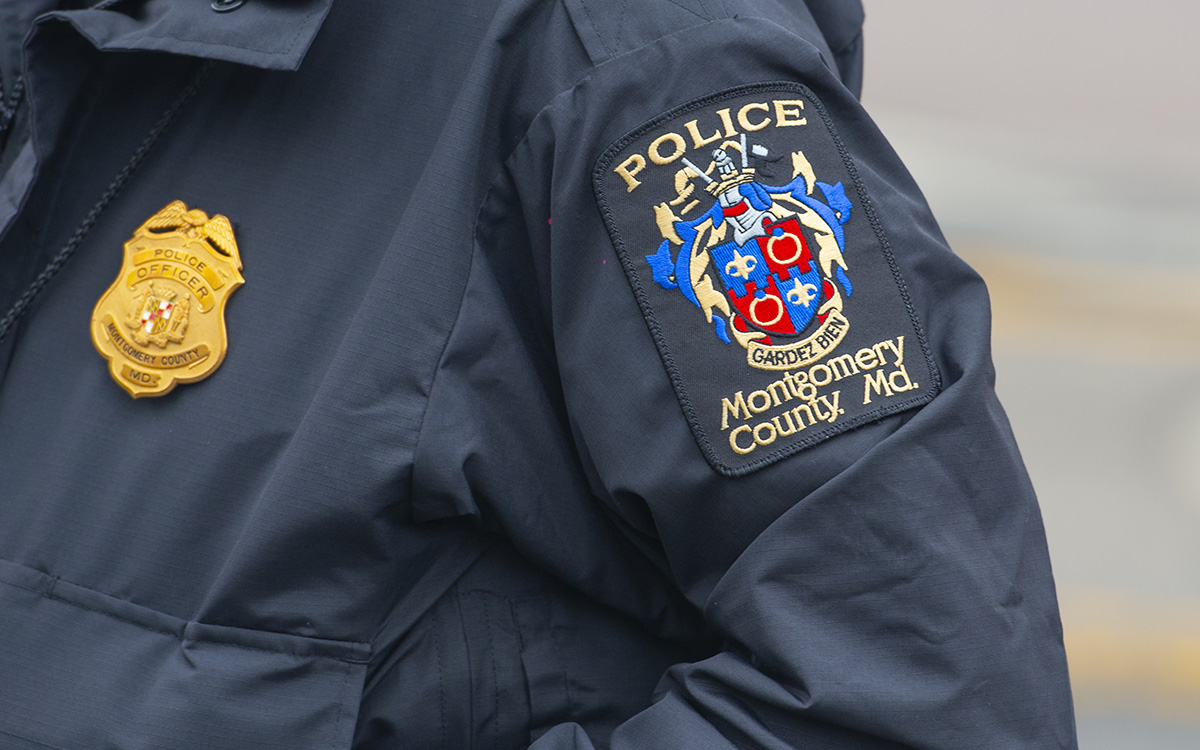News
Once again, marriage equality inches closer to Supreme Court
At least four appeals courts set to consider issue this spring


David Boies and Ted Olson are leading the VIrginia lawsuit heading to the U.S. Supreme Court (Washington Blade photo by Michael Key).
Not even a year has passed since the U.S. Supreme Court issued its landmark decisions against the Defense of Marriage Act and California’s Proposition 8, but a number of cases are already lining up that would enable the high court to make a nationwide ruling in favor of marriage equality.
At least four appellate courts are set to consider the issue this spring amid five district court decisions in favor of marriage equality in Utah, Oklahoma, Ohio, Kentucky and Virginia. Once the appellate courts make their decisions, they will likely be appealed this year to the Supreme Court, which would give justices the opportunity to make a final decision in 2015.
Although the Ohio ruling was limited to death certificates for married gay couples and the Kentucky ruling only provided recognition of out-of-state same-sex marriages, each of the rulings handed down since the DOMA decision were in favor of marriage equality. And in each ruling, justices invoked the decision against DOMA as part of their reasoning for determining state constitutional amendments against same-sex marriage violated the Constitution.
U.S. District Judge John Heyburn, an appointee of former President George H.W. Bush, noted last week in his decision that the words of the DOMA decision by U.S. Associate Justice Anthony Kennedy compels him to rule against Kentucky’s marriage laws.
“Ultimately, the focus of the Court’s attention must be upon Justice Kennedy’s majority opinion in Windsor,” Heyburn said. “While Justice Kennedy did not address our specific issue, he did address many others closely related. His reasoning about the legitimacy of laws excluding recognition of same-sex marriages is instructive. For the reasons that follow, the Court concludes that Kentucky’s laws are unconstitutional.”
Ted Olson, the Republican half of the legal duo arguing against Virginia’s ban on same-sex marriage, during a conference call Friday noted the consistency with which district courts have struck down anti-gay marriage amendments in the aftermath of the DOMA decision.
“Federal courts are consistently, regularly now, affirming the right of gay and lesbian citizens to be a part of the population of the rest of our citizens with equal rights to the fundamental right of marriage,” Olson said.
The cases against same-sex marriage bans in Utah and Oklahoma are the furthest advanced of all the lawsuits seeking marriage equality. They’re before the U.S. Tenth Circuit Court of Appeals in Denver, where oral arguments are scheduled in Utah case for April 10 and the Oklahoma case for April 17. The National Center for Lesbian Rights has joined the law firm of Magleby & Greenwood, P.C., as counsel in the Utah case.
Just behind that lawsuit is the case seeking marriage equality in Nevada filed by Lambda Legal known as Sevcik v. Sandoval. After Nevada Attorney General Catherine Cortez Masto declared her intent to withdraw her brief in favor of the marriage ban, the U.S. Ninth Circuit Court of Appeals last week acceded to her request and pledged to proceed with the lawsuit on an expedited basis, although no date has been set for oral arguments.
The Ohio case has already been appealed to the U.S. Sixth Circuit Court of Appeals, which is also the destination of the Kentucky lawsuit. These cases are also in their early stages at the appellate level, and schedule hasn’t been determined.
And the court ruling against Virginia’s ban on same-sex marriage, the latest to come down from a federal court, will be headed to the U.S. Fourth Circuit of Appeals. Although Virginia Attorney General Mark Herring isn’t defending the ban against same-sex marriage in court, Olson said he sees no standing issue in the case and because county clerks are participating in the lawsuit, the state continues to enforce the law.
But according to Lambda Legal, a total of 52 marriage equality lawsuits are pending in 27 states, and any of the cases at district court level could soon join those at the appellate level.
A judge will likely render a decision soon in the other lawsuit seeking marriage equality in Virginia, which was filed by the American Civil Liberties Union and Lambda Legal. A judge in Michigan has set a trial for that state’s constitutional ban on same-sex marriage on Feb. 25, just as a trial has been set in the Pennsylvania case for June 9.
Given the sheer number of cases making their way through the courts, David Boies, the Democratic half of the legal duo in the Virginia lawsuit, said the Supreme Court would have no shortage of cases from which to choose by the time it begins its term in the fall.
“I think they will all get to the Supreme Court at about the same time,” Boies said. “The Supreme Court can decide to take them all and consolidate them, the Supreme Court can take one or more of the cases, but not all of then. I think that is something that will be determined by the Supreme Court, and, to some extent, by the timing of the court of appeals decision.”
It’s technically possible for the Supreme Court to take up this issue this term once those cases are appealed, which would mean a nationwide ruling by June.
Jon Davidson, legal director for Lambda Legal, nonetheless said it “seems extraordinarily unlikely” the litigation would play out in that way.
“Even if an appellate decision in one of these cases were issued by May, a certiorari petition likely would not get filed until the summer, and the Supreme Court wouldn’t act on that until October,” Davidson said. “It does not have to grant cert on the first, or, even any of these cases. Even if it does, there likely wouldn’t be a decision until the spring of 2015.”
One issue to watch as these cases make their way up is whether courts apply heightened scrutiny, or a greater assumption a law is unconstitutional, to their decisions on the marriage bans. Such a determination would designate gay people with a “quasi-suspect classification” and establish precedent making other laws related to sexual orientation less likely to stand up in court.
When it ruled on the DOMA case last year, the U.S. Second Circuit Court of Appeals already set a precedent for heightened scrutiny for laws related to sexual orientation, but every state in that jurisdiction — New York, Vermont and Connecticut — already has marriage equality.
More recently, the U.S. Ninth Circuit Court of Appeals applied heightened scrutiny in its decision for Smith Kline v. Abbott Laboratories, which determined that jurors cannot be excluded from a trial because of sexual orientation.
Because of the application of heightened scrutiny in that case, the Nevada attorney general stopped defending her state’s marriage ban. Further, expectations are high that courts in Oregon and Arizona, which lie within that jurisdiction, will strike down bans in those states.
It was speculated the Supreme Court took up the Edith Windsor’s challenge to DOMA as opposed to others because the Second Circuit applied heightened scrutiny on that decision, although the high court never explicitly addressed the issue of heightened scrutiny in its ultimate decision. Eyes will be on the Supreme Court to see if it will take up the Ninth Circuit marriage case among others to resolve the issue of heightened scrutiny in the next go-around with marriage equality.
Doug NeJaime, who’s gay and a law professor at University of California, Irvine, nonetheless said he doesn’t think the Supreme Court has interest in resolving this issue for laws related to sexual orientation.
“The Supreme Court in Windsor didn’t explicitly reach this question, even though the lower court had based its decision on heightened scrutiny,” NeJaime said. “Given that, it doesn’t seem the Court is particularly interested in resolving that question, and I don’t think it will do much to persuade the court to take or not take a case.”
Another question is the extent to which the Obama administration will participate in the pending lawsuits. The Justice Department helped litigate against DOMA as party in the lawsuit and assisted in the lawsuit against Prop 8 as a friend of the court, although in the latter case the administration filed a brief and took part in oral arguments only when the litigation reached the Supreme Court.
A number of LGBT advocates have said they’d welcome participation from the Obama administration in the marriage equality cases without making a full-throated call for assistance. On Friday, White House Press Secretary Jay Carney wouldn’t make a prediction on whether the administration will take part and deferred comment to the Justice Department, which hasn’t responded to the Blade’s request to comment.
The opportunity for the Justice Department to file a brief in the Nevada case before the Ninth Circuit has already passed, but another opportunity will come soon. The deadline for filing a friend-of-the-court brief before the Tenth Circuit in the Utah case is March 4.
Erik Olvera, spokesperson for the National Center for Lesbian Rights, echoed the sense of other advocates on the issue, saying a friend-of-the-court brief from the Obama administration would be “welcome” in the Utah case.
“We always welcome the Obama administration to express its views in cases concerning civil rights protected by the U.S. Constitution,” Olvera said.
Maryland
Montgomery County police chief discusses arrest of trans student charged with planned school shooting
County executive tells news conference student’s trans identity is irrelevant to criminal charge

Montgomery County, Md., Police Chief Marcus Jones joined other county and law enforcement officials at a news conference on Friday, April 19, to provide details of the police investigation and arrest of an 18-year-old high school student charged two days earlier with threats of mass violence based on information that he allegedly planed a mass shooting at the high school and elementary school he attended in Rockville, Md.
In charging documents and in a press released issued on April 18, Montgomery County Police identified the arrested student as “Andrea Ye, of Rockville, whose preferred name is Alex Ye.”
One of the charging documents states that a friend of Ye, who police say came forward as a witness who played a crucial role in alerting authorities to Ye’s threats of a school shooting, noted that Ye told the witness that Ye identified as the transgender student he wrote about as a character in a 129-page manifesto outlining plans for a school shooting. Police have said Ye told them the manifesto was a fictional story he planned to publish.
At the news conference on Friday, Police Chief Jones and other law enforcement officials, including an FBI official and Montgomery County Executive Marc Elrich, referred to the student as Alex Ye and Mr. Ye. None of the officials raised the issue of whether Ye identified as a transgender man, seven though one of the police documents identifies Ye as a “biological female.”
County Executive Elrich appeared to express the views of the public officials at the news conference when one of the media reporters, during a question-and-answer period, asked Elrich why he and the others who spoke at the news conferment failed to “admit that this individual was transgender.”
“Because it’s not a lead,” Elrich replied, asking if the press and law enforcement authorities should disclose that someone arrested for murder is “a white Christian male who’s heterosexual.” Elrich stated, “No, you don’t – You never publish somebody’s sexual orientation when we talk about this. Why you are focusing on this being a transgender is beyond me. It’s not a news story. It is not a crime to be transgender.”
The reporter attempted to respond but was cut off by the press conference moderator, who called on someone else to ask the next question.
In his remarks at the press conference Chief Jones praised the so far unidentified witness who was the first to alert authorities about Ye’s manifesto appearing to make threats of a mass school shooting.
“Now, this is a situation that highlights the critical importance of vigilance and community involvement in preventing potential tragedies,” Jones said. “I commend the collaborative efforts of the Montgomery County Police Department, the Federal Bureau of Investigation, the Rockville City Police Department, and the Montgomery County Public Schools, as well as Montgomery County Health and Human Services,” he told the gathering.
“Thanks to their swift action and cooperation a potentially catastrophic event was prevented,” Jones said.
Jones pointed out that during the current school year, police have received reports of 140 threats to the public schools in Montgomery County. He said after a thorough investigation, none of them rose to the level where an arrest was made. Instead, police and school officials took steps to arrange for the student making the threats and their parents to take remedial action, including providing mental health services.
“But this case is different,” Jones said. “This case is entirely different that takes it to a different level. It was a concerned witness who brought this matter to light by rereporting the suspect’s manifesto to the authorities. This underscores the value of community engagement and the ‘see something say something’ approach,” he said.
Jones mentioned at the press conference that Ye was being held without bond since the time of his arrest but was scheduled to appear in court for a bond hearing on Friday shortly after the press conference took place to determine whether he should be released while awaiting trial or continue to be held.
In his manifesto obtained by police, Ye writes about committing a school shooting, and strategizes how to carry out the act. Ye also contemplates targeting an elementary school and says that he wants to be famous.
In charging documents reported on by WJLA 7 and WBAL 11, the 129-page document, which Ye has referred to as a book of fiction, included writings that said, in part:
“I want to shoot up a school. I’ve been preparing for months. The gun is an AR-15. This gun is going to change lives tomorrow … As I walk through the hallways, I cherry pick the classrooms that are the easiest targets. I need to figure out how to sneak the gun in. I have contemplated making bombs. The instructions to make them are surprisingly available online. I have also considered shooting up my former elementary school because little kids make easier targets. High school’s the best target; I’m the most familiar with the layout. I pace around my room like an evil mastermind. I’ve put so much effort into this. My ultimate goal would be to set the world record for the most amount of kills in a shooting. If I have time, I’ll try to decapitate my victims with a knife to turn the injuries into deaths.”
Federal Government
Lambda Legal praises Biden-Harris administration’s finalized Title IX regulations
New rules to take effect Aug. 1

The Biden-Harris administration’s revised Title IX policy “protects LGBTQ+ students from discrimination and other abuse,” Lambda Legal said in a statement praising the U.S. Department of Education’s issuance of the final rule on Friday.
Slated to take effect on Aug. 1, the new regulations constitute an expansion of the 1972 Title IX civil rights law, which prohibits sex-based discrimination in education programs that receive federal funding.
Pursuant to the U.S. Supreme Court’s ruling in the landmark 2020 Bostock v. Clayton County case, the department’s revised policy clarifies that discrimination on the basis of sexual orientation and gender identity constitutes sex-based discrimination as defined under the law.
“These regulations make it crystal clear that everyone can access schools that are safe, welcoming and that respect their rights,” Education Secretary Miguel Cardona said during a call with reporters on Thursday.
While the new rule does not provide guidance on whether schools must allow transgender students to play on sports teams corresponding with their gender identity to comply with Title IX, the question is addressed in a separate rule proposed by the agency in April.
The administration’s new policy also reverses some Trump-era Title IX rules governing how schools must respond to reports of sexual harassment and sexual assault, which were widely seen as imbalanced in favor of the accused.
Jennifer Klein, the director of the White House Gender Policy Council, said during Thursday’s call that the department sought to strike a balance with respect to these issues, “reaffirming our longstanding commitment to fundamental fairness.”
“We applaud the Biden administration’s action to rescind the legally unsound, cruel, and dangerous sexual harassment and assault rule of the previous administration,” Lambda Legal Nonbinary and Transgender Rights Project Director Sasha Buchert said in the group’s statement on Friday.
“Today’s rule instead appropriately underscores that Title IX’s civil rights protections clearly cover LGBTQ+ students, as well as survivors and pregnant and parenting students across race and gender identity,” she said. “Schools must be places where students can learn and thrive free of harassment, discrimination, and other abuse.”
Maryland
Rockville teen charged with plotting school shooting after FBI finds ‘manifesto’
Alex Ye charged with threats of mass violence

BY BRETT BARROUQUERE | A Montgomery County high school student is charged with what police describe as plans to commit a school shooting.
Andrea Ye, 18, of Rockville, whose preferred name is Alex Ye, is charged with threats of mass violence. Montgomery County Police and the FBI arrested Ye Wednesday.
The rest of this article can be found on the Baltimore Banner’s website.
-

 District of Columbia2 days ago
District of Columbia2 days agoReenactment of first gay rights picket at White House draws interest of tourists
-

 District of Columbia2 days ago
District of Columbia2 days agoNew D.C. LGBTQ+ bar Crush set to open April 19
-

 Arizona2 days ago
Arizona2 days agoAriz. governor vetoes anti-transgender, Ten Commandments bill
-

 Africa4 days ago
Africa4 days agoUgandan activists appeal ruling that upheld Anti-Homosexuality Act












